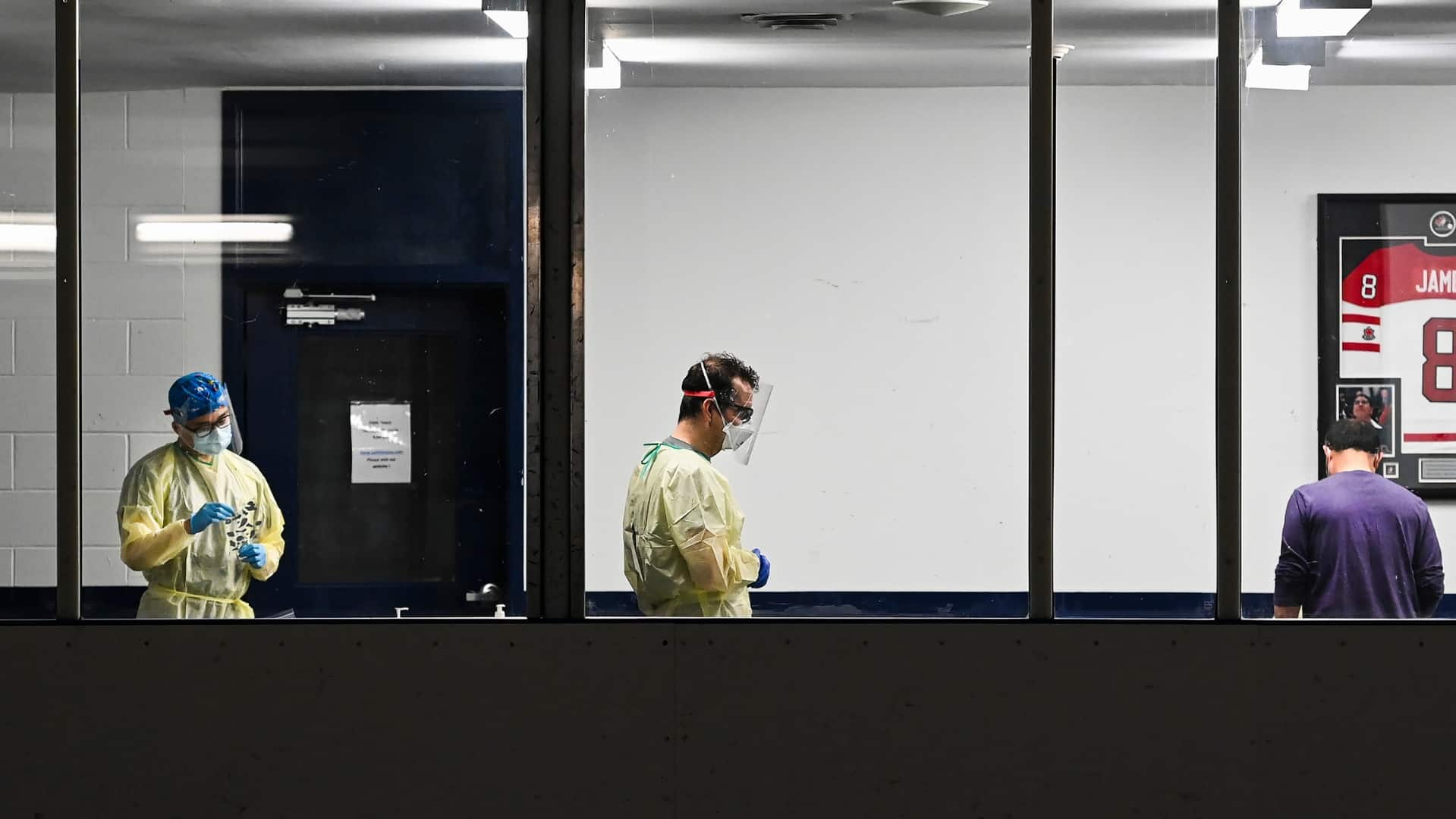COVID, Here To Stay
"A lot of people think, 'I got COVID, I got over it and I'm fine', and it's a nothing-burger for them. But that's not everything.""[For some people], it's still wreaking havoc in your body."Ziyad Al Aly, clinical epidemiologist, School of Medicine, Washington University"[COVID] immune damage [could be contributing to recent surges in RSV [respiratory synctial virus] and other respiratory infections].""[The study] shows that the terrible 2022 RSV epidemic was not as simple as a 'catch up' year.""The 2022 surge was driven by 'more severe cases'. What happened between 2021 and 2022? Mass infections of children with Omicron."Lisa Iannattone, assistant professor of dermatology, McGill University
 |
| New research out of
Israel suggests most symptoms of long COVID clear up within a year, but
some — like weakness and trouble breathing — are more likely to
persist. CBCNews |
Although the initial years-long panic over the pandemic has subsided, an estimated three-and-a-half million Canadians have experienced symptoms of fatigue, brain fog, shortness of breath and other associated symptoms that have lingered for three months or more following a confirmed or suspected COVID infection "that could not be explained by anything else", according to a newly published national study on the after-effects of SARS-CoV-2, the virus causing COVID.
From mild to debilitating long-term problems, people tended on average to miss 24 days of work or school for a cumulative total of some 14.5 million missed days. And the more infections circulating within society at any given time, the likelier people were to come away from their COVID-infection experience with long-lasting symptoms. "As of June 2023, about 100,000 Canadian adults have been unable to return to work or school because of their symptoms": Statistics Canada and Public Health Agency of Canada survey.
Dr. Manali Mukherjee, an immunologist with McMaster University, found himself coping with symptoms for a year and a half recovering from long COVID. What exactly defines the "post COVID" experience, how best to treat patients, what possible medications might work best, are questions experts are still struggling with. There are over 100 symptoms, just to complicate matters, ranging from abdominal pain, hair loss and concentration problems.
Some experts believe that rogue autoantibodies turn on the bodies' own tissues, attacking the "host", or overactive cytokines-- proteins that boost inflammation in the body's natural immune response might be the source of the problem. "Cytokines give us an idea that there is still inflammation going on", explained Dr. Mukherjee.
A recent study published in Nature Medicine found increased risks of cardiovascular issues, diabetes, lung problems, gut problems, blood clots as well as additional conditions remained up to two years following infection even after mild or moderate COVID infections. The study was based on the health records of U.S. military veterans, infected prior to vaccines and drugs such as Paxlovid were available.
COVID is known to cause damage to organs and the vascular system in some people.
Some in the medical community engaged in COVID research have once more amplified on social media that COVID "damages the immune system", so that people become more susceptible to other respiratory viruses or pathogens. Some leading experts in virology and immunology feel this to be speculative rhetoric exaggerating the risks associated with COVID. COVID-19, like other respiratory viruses can lead to 'temporary perturbation' in the immune system.
According to Matthew Miller, COVID can cause immunological changes that can be measured with sophisticated techniques, but whether these are meaningful changes requires careful study.
"It's not that I don't believe it is possible that COVID might, in some cases, cause immune deficiency-- it's simply that there is not currently sufficient evidence to conclude that it happens.""Is getting infected good for you? Of course not. Should we take steps to prevent infection? Absolutely!""But rhetoric that overstates the current state of evidence related to COVID risks is no more valid than rhetoric that diminishes the seriousness of COVID-19."Matthew Miller, director, Michael G. Degroote Institute for Infectious Disease Research, McMaster University
 | ||
| Doctors and epidemiologists are reporting a surge of new COVID infections. CBCNews |
Labels: COVID-19, Immune System, Lasting Symptoms, Long COVID, Studies

0 Comments:
Post a Comment
<< Home